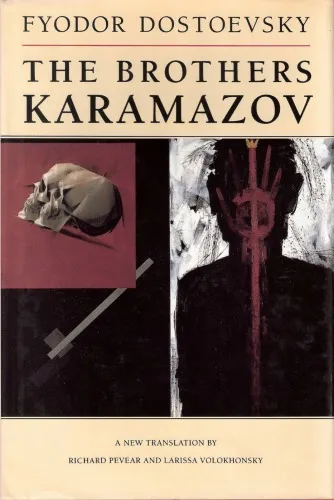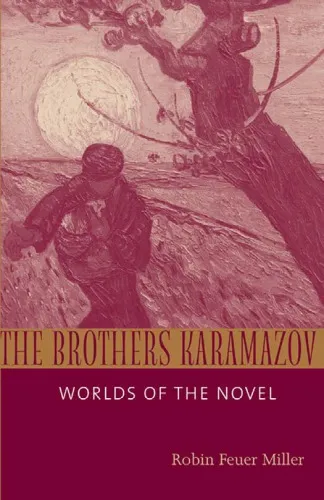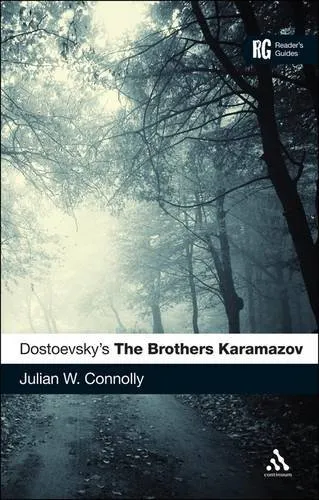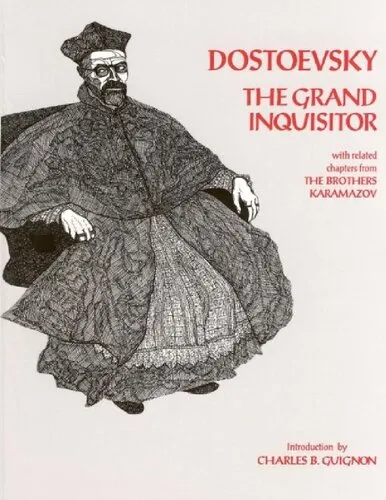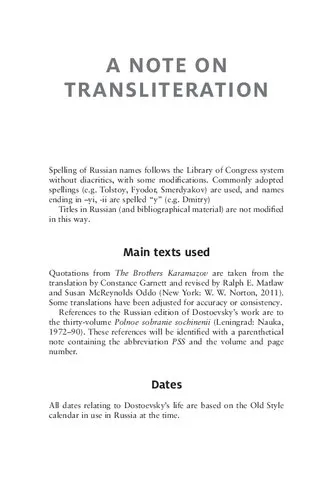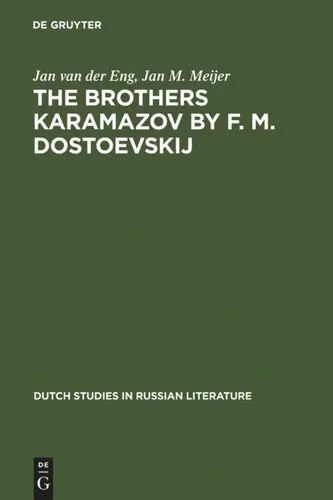Fyodor Dostoevsky’s The Brothers Karamazov
4.3
Reviews from our users

You Can Ask your questions from this book's AI after Login
Each download or ask from book AI costs 2 points. To earn more free points, please visit the Points Guide Page and complete some valuable actions.Related Refrences:
Persian Summary
Introduction
Fyodor Dostoevsky’s "The Brothers Karamazov" is a profound psychological and philosophical novel that stands as one of the pinnacles of world literature. Renowned for its deep exploration of faith, doubt, and moral struggles, this literary masterpiece delves into the complexities of human nature and the eternal conflict between good and evil. First published in 1880, the novel remains a timeless reflection of existential dilemmas, earning its place as a classic inquiry into the human soul.
Detailed Summary
"The Brothers Karamazov" tells the turbulent story of the Karamazov family, particularly focusing on the three sons of the reckless and immoral Fyodor Pavlovich Karamazov. Dmitri, the passionate and impulsive eldest brother, Ivan, the intellectual and philosophical middle brother, and Alyosha, the youngest son and a novice monk guided by the teachings of Father Zosima. The narrative traces their interactions, their inner conflicts, and their participation in the unfolding tragedy of patricide.
Set against the backdrop of 19th-century Russia, the novel explores themes of patricide, friction between faith and doubt, and the philosophical debates about free will. The murder of their father, Fyodor, acts as the focal event that propels the characters into existential inquiries, ultimately leading to Dmitri being accused of the crime despite ambiguous evidence of his guilt.
Key Takeaways
- The interplay between faith and doubt is a core theme, highlighting Dostoevsky's exploration of spiritual and moral dilemmas.
- "The Grand Inquisitor," a famous parable told by Ivan, encapsulates the philosophical debates about freedom and authority.
- Each Karamazov brother embodies different aspects of human nature and philosophical ideals: physicality and emotion, intellect and skepticism, spirituality and purity.
- The novel is a commentary on the struggles inherent in the human condition, addressing timeless questions of justice, morality, and redemption.
Famous Quotes from the Book
"The mystery of human existence lies not in just staying alive, but in finding something to live for."
"Above all, don't lie to yourself. The man who lies to himself and listens to his own lie comes to a point that he cannot distinguish the truth within him, or around him, and so loses all respect for himself and for others."
"If you want to be respected by others, the great thing is to respect yourself. Only by that, only by self-respect will you compel others to respect you."
Why This Book Matters
"The Brothers Karamazov" matters because it offers an unparalleled exploration of philosophical thought and moral questioning, which remain relevant to modern audiences. Dostoevsky's ability to create multi-dimensional characters allows readers to confront and ponder essential existential questions. The novel's rich exploration of themes such as free will, faith, and redemption speaks to diverse audiences, offering profound insights into the human psyche.
The book's resonance with contemporary issues of faith, skepticism, and ethical inquiry ensures its place in both literary and philosophical discussions. Dostoevsky's work transcends its time, stressing the importance of compassion, and understanding, and the quest for moral truth, making "The Brothers Karamazov" a vital read for anyone seeking to explore the depths of human emotion and thought.
Free Direct Download
You Can Download this book after Login
Accessing books through legal platforms and public libraries not only supports the rights of authors and publishers but also contributes to the sustainability of reading culture. Before downloading, please take a moment to consider these options.
Find this book on other platforms:
WorldCat helps you find books in libraries worldwide.
See ratings, reviews, and discussions on Goodreads.
Find and buy rare or used books on AbeBooks.
1719
بازدید4.3
امتیاز0
نظر98%
رضایتReviews:
4.3
Based on 0 users review
Questions & Answers
Ask questions about this book or help others by answering
No questions yet. Be the first to ask!
